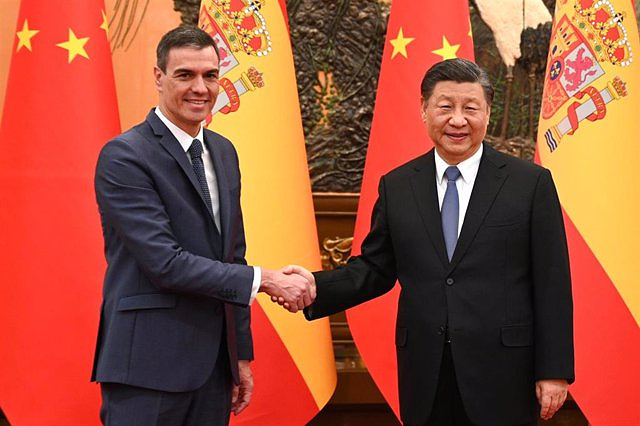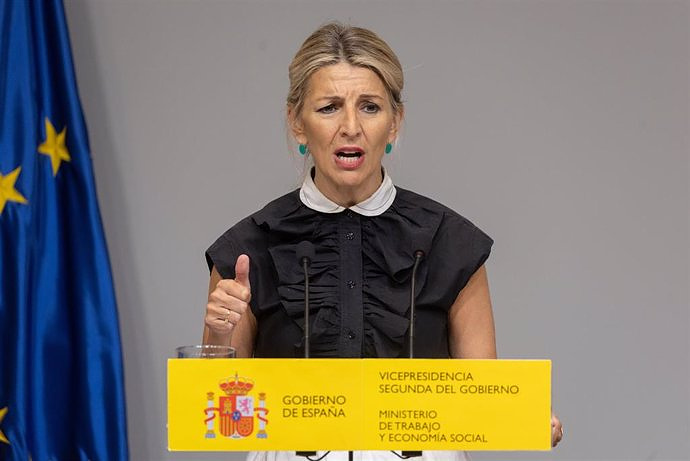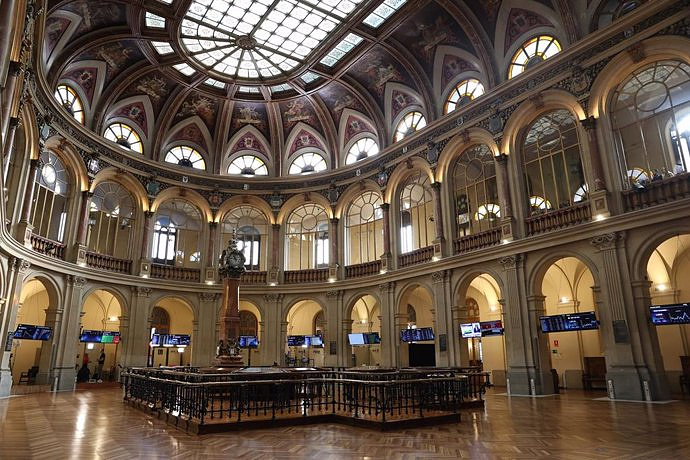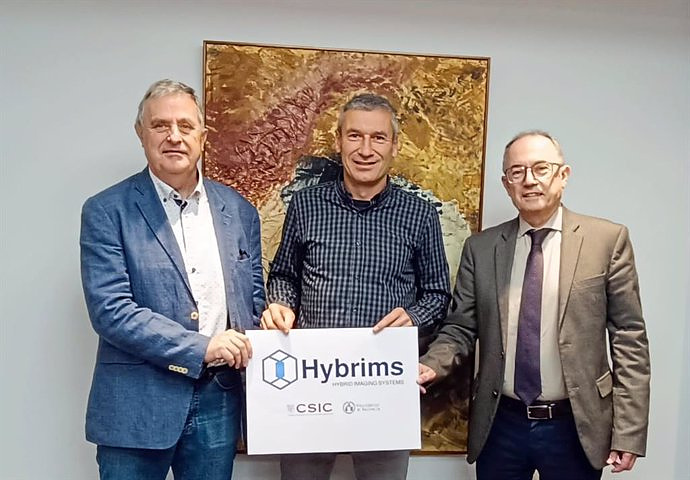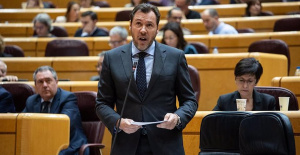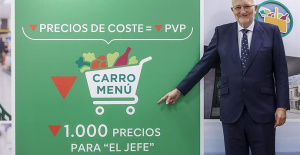The president does not clarify if his conversation with the Chinese president makes him more optimistic about peace
MADRID, 31 Mar. (EUROPA PRESS) -
The President of the Government, Pedro Sánchez, has ended his official visit to China reiterating Spain's support for the peace plan proposed by the Ukrainian President, Volodimir Zelenski, and calling on the Chinese President, Xi Jinping, with whom he has met in Beijing, to listen to what Kiev has to say about the conflict.
Sánchez has expressly avoided clarifying what the Chinese president has told him regarding his recent visit to Moscow and the meeting he had with Russian President Vladimir Putin, referring to the fact that the Chinese government must be the one to speak, while he has not wanted to either. indicate whether it leaves China more hopeful regarding a peaceful solution to the conflict.
The president had anticipated that one of the objectives of his visit was to learn the details of the document proposed by Xi to try to resolve the dispute, but he did not want to go into detail about what was discussed with the Chinese president, beyond indicating that he had expressly requested that he speak with Zelenski to "learn first-hand" his peace proposal, or if he leaves more hopeful and optimistic about the future.
However, at the press conference held at the end of the visit, Sánchez acknowledged that the Chinese document includes "some points that are very important", such as the fact that not only the use is rejected but also the threat to use of nuclear weapons in the conflict as well as respect for territorial integrity, "something that Putin is violating with his war".
The head of the Executive has insisted that the Spanish position is clear, as is that of the EU, which is united in its "defense of the territorial integrity and national sovereignty of a people that is being attacked", as is the Ukrainian, and in his "rejection and condemnation of the aggressor".
On this point, Sánchez has stressed that "we have nothing against the Russian people", but we do have against its president, who is "violating the United Nations Charter" and that ultimately what he seeks with the invasion of Ukraine is to "weaken a multilateral project of peace and welfare like the EU".
"We have understood the message, we know what Putin wants with his war in Ukraine and we are not going to accept it," he stressed. That is why Europe is helping Ukraine in all areas, with the shipment of arms, with financial support and with humanitarian support.
"To contribute to peace we have to do what we are doing and transfer the benefits of Zelenski's peace plan," he said. "We all want a peace but we want it to be just and lasting", for this, it must be based on the position of Ukraine, as an attacked country, and on the United Nations Charter.
On the other hand, the President of the Government has indicated that in recent days he has been in contact with the President of the European Commission, Ursula Von der Leyen, and her team and therefore knew about the intervention on China that she was going to carry out, although he did not want to comment on the terms in which the community manager expressed himself.
"I agree with her that the relationship between the EU and China is complex, and also very important," she stated, while defending the need to deepen it, something that she said Spain will try to do during the current Presidency that she will assume in the second semester.
However, he has made it clear that it is necessary to "find a better balance" in economic and trade relations, "respecting the rules of the game, improving transparency and guaranteeing reciprocity in market access."
During the EU Presidency, Spain will try to promote relations given that both parties are called upon to cooperate in the face of global challenges such as the climate emergency and to "bring closer positions on issues in which China and the European Union currently they have a greater distance", he indicated, highlighting on this point the resumption of the dialogue on Human Rights last February in Brussels and his confidence that it can continue.
"There are those who take it for granted that the 21st century is going to be a century of fragmentation, of warlike tensions and of division between blocks," said Sánchez, for whom being "drift would not benefit anyone." In this sense, he has considered that this would not have to be the case if Europe and the rest of the great world powers do not want to. "The future is not written, it is not imposed on us, we build it," he asserted.
But for this, he added, "we are obliged to work so that this new global order that is taking shape guarantees peace, development that is respectful of the planet, well-being and the rights and freedoms of our citizens.
"In the face of protectionism and mistrust that loom over the horizon", he concluded, "Spain will always defend openness and trust between partners", "based on symmetrical cooperation, mutual benefit and respect for the rules".

 Exploring Cardano: Inner Workings and Advantages of this Cryptocurrency
Exploring Cardano: Inner Workings and Advantages of this Cryptocurrency Seville.- Economy.- Innova.- STSA inaugurates its new painting and sealing hangar in San Pablo, for 18 million
Seville.- Economy.- Innova.- STSA inaugurates its new painting and sealing hangar in San Pablo, for 18 million Innova.- More than 300 volunteers join the Andalucía Compromiso Digital network in one month to facilitate access to ICT
Innova.- More than 300 volunteers join the Andalucía Compromiso Digital network in one month to facilitate access to ICT Innova.-AMP.- Ayesa acquires 51% of Sadiel, which will create new technological engineering products and expand markets
Innova.-AMP.- Ayesa acquires 51% of Sadiel, which will create new technological engineering products and expand markets Dortmund storms Paris and reaches the final
Dortmund storms Paris and reaches the final Cos bids farewell to Congress warning that the lack of political consensus "affects economic prospects"
Cos bids farewell to Congress warning that the lack of political consensus "affects economic prospects" Two workers died and one injured when two floors collapsed in a building under construction in Fuencarral
Two workers died and one injured when two floors collapsed in a building under construction in Fuencarral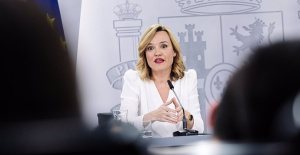 The Government will wait until after the European elections to propose measures on democratic regeneration
The Government will wait until after the European elections to propose measures on democratic regeneration How Blockchain in being used to shape the future
How Blockchain in being used to shape the future Not just BTC and ETH: Here Are Some More Interesting Coins Worth Focusing on
Not just BTC and ETH: Here Are Some More Interesting Coins Worth Focusing on They develop devices for the precise diagnosis of cancer patients
They develop devices for the precise diagnosis of cancer patients UMH researchers are working on a high-quality apricot crop that requires less irrigation water
UMH researchers are working on a high-quality apricot crop that requires less irrigation water The UPV develops an application to improve the quality of life of patients with glioblastoma
The UPV develops an application to improve the quality of life of patients with glioblastoma A sensor system obtains the fingerprint of essential oils and detects if they have been adulterated
A sensor system obtains the fingerprint of essential oils and detects if they have been adulterated A million people demonstrate in France against Macron's pension reform
A million people demonstrate in France against Macron's pension reform Russia launches several missiles against "critical infrastructure" in the city of Zaporizhia
Russia launches several missiles against "critical infrastructure" in the city of Zaporizhia A "procession" remembers the dead of the Calabria shipwreck as bodies continue to wash up on the shore
A "procession" remembers the dead of the Calabria shipwreck as bodies continue to wash up on the shore Prison sentences handed down for three prominent Hong Kong pro-democracy activists
Prison sentences handed down for three prominent Hong Kong pro-democracy activists ETH continues to leave trading platforms, Ethereum balance on exchanges lowest in 3 years
ETH continues to leave trading platforms, Ethereum balance on exchanges lowest in 3 years Investors invest $450 million in Consensys, Ethereum incubator now valued at $7 billion
Investors invest $450 million in Consensys, Ethereum incubator now valued at $7 billion Alchemy Integrates Ethereum L2 Product Starknet to Enhance Web3 Scalability at a Price 100x Lower Than L1 Fees
Alchemy Integrates Ethereum L2 Product Starknet to Enhance Web3 Scalability at a Price 100x Lower Than L1 Fees Mining Report: Bitcoin's Electricity Consumption Declines by 25% in Q1 2022
Mining Report: Bitcoin's Electricity Consumption Declines by 25% in Q1 2022 Oil-to-Bitcoin Mining Firm Crusoe Energy Systems Raised $505 Million
Oil-to-Bitcoin Mining Firm Crusoe Energy Systems Raised $505 Million Microbt reveals the latest Bitcoin mining rigs -- Machines produce up to 126 TH/s with custom 5nm chip design
Microbt reveals the latest Bitcoin mining rigs -- Machines produce up to 126 TH/s with custom 5nm chip design Bitcoin's Mining Difficulty Hits a Lifetime High, With More Than 90% of BTC Supply Issued
Bitcoin's Mining Difficulty Hits a Lifetime High, With More Than 90% of BTC Supply Issued The Biggest Movers are Near, EOS, and RUNE during Friday's Selloff
The Biggest Movers are Near, EOS, and RUNE during Friday's Selloff Global Markets Spooked by a Hawkish Fed and Covid, Stocks and Crypto Gain After Musk Buys Twitter
Global Markets Spooked by a Hawkish Fed and Covid, Stocks and Crypto Gain After Musk Buys Twitter Bitso to offset carbon emissions from the Trading Platform's ERC20, ETH, and BTC Transactions
Bitso to offset carbon emissions from the Trading Platform's ERC20, ETH, and BTC Transactions Draftkings Announces 2022 College Hoops NFT Selection for March Madness
Draftkings Announces 2022 College Hoops NFT Selection for March Madness